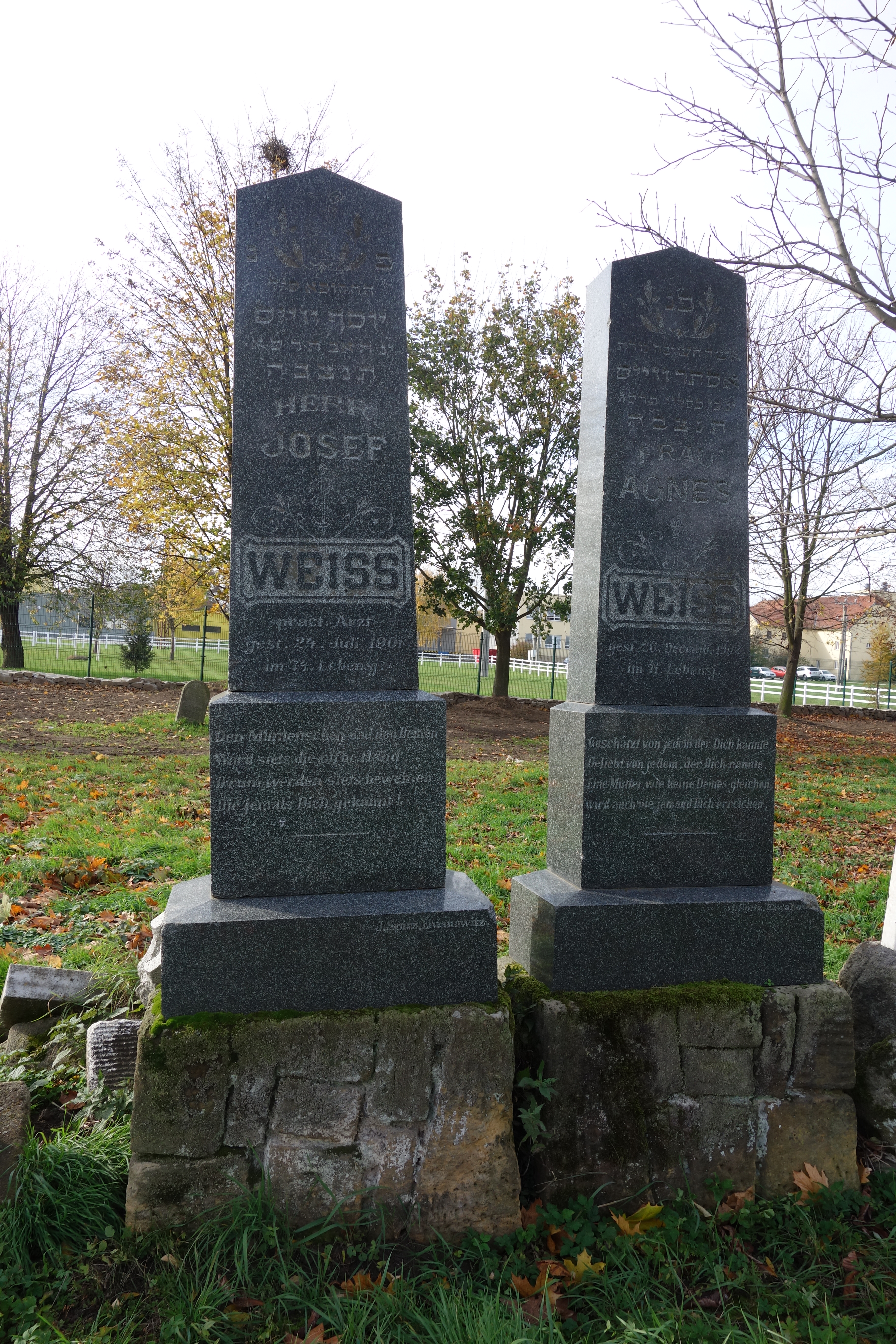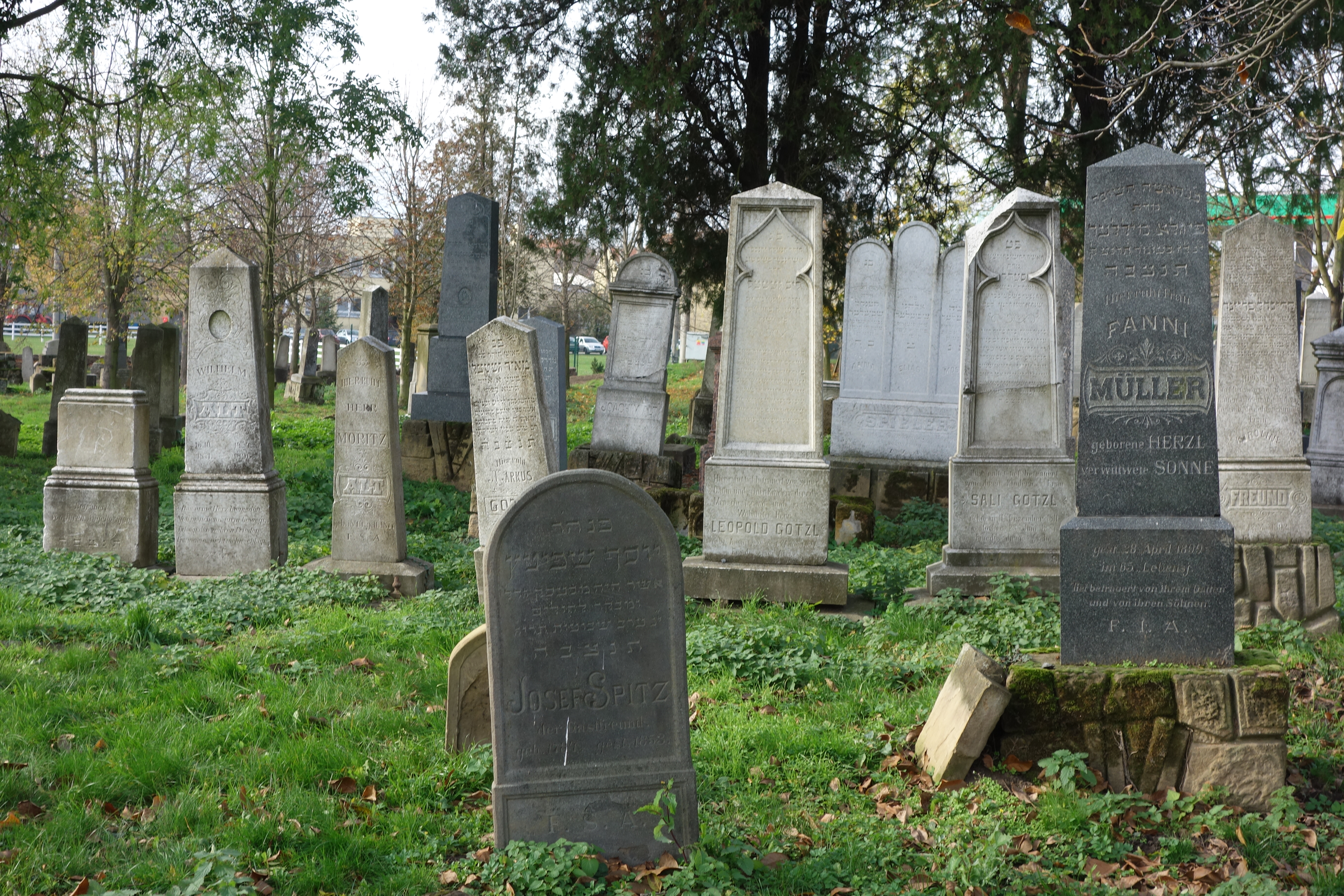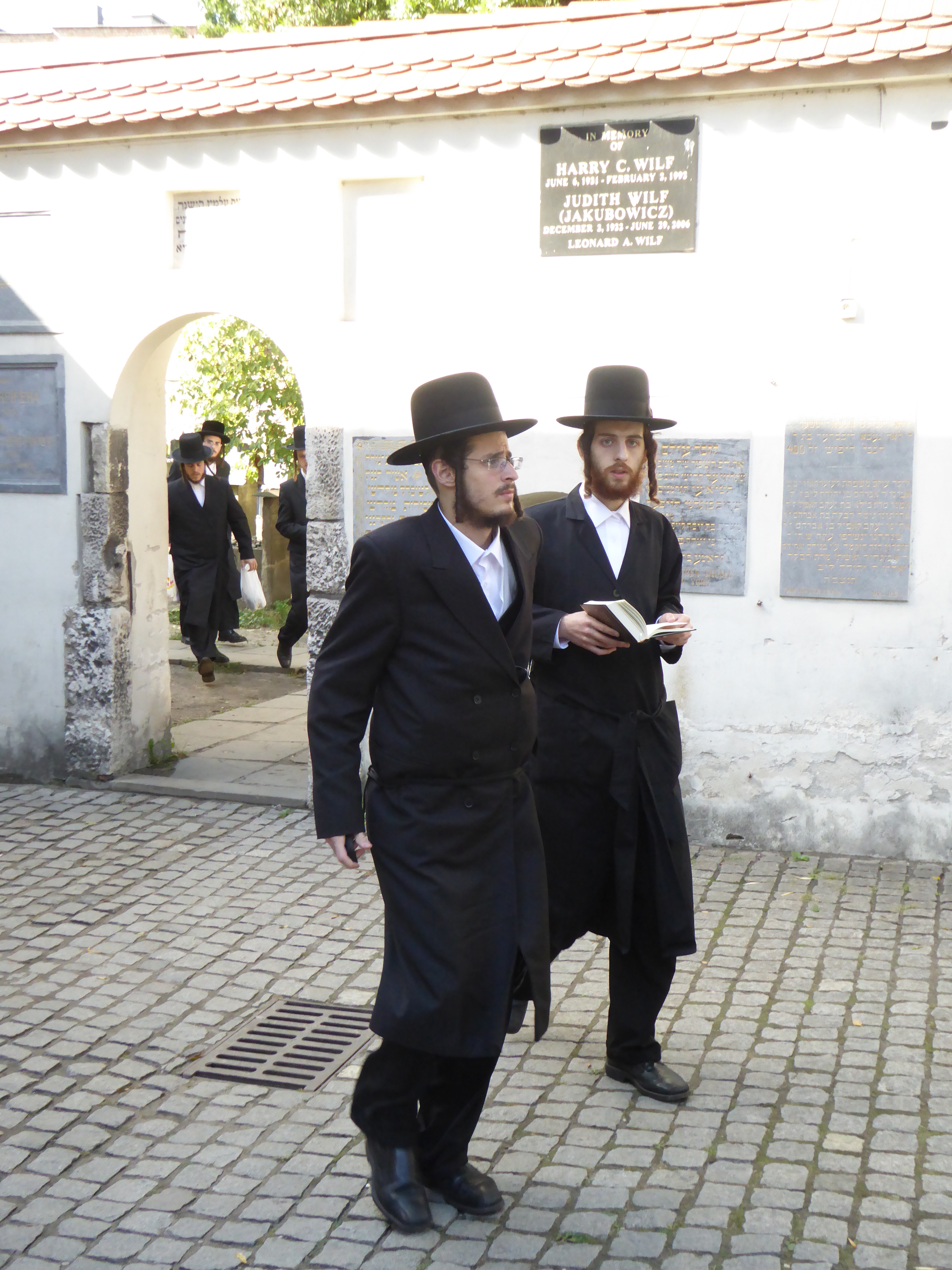“EVERY VIENNESE HAS A BOHEMIAN GRANDMOTHER“: BOHEMIAN & MORAVIAN JEWS IN THE AUSTRO-HUNGARIAN EMPIRE

The gravestones of Josef Weiss, medical doctor, and Agnes Weiss, his wife, my great-great grandparents, Eywanowitz (Ivanovice na Hane)
„Every Viennese has a Bohemian grandmother”, this popular Viennese saying is partly true for me as well, but she was a Moravian and not a Bohemian grandmother because Lola was born in Eywanowitz (today Ivanovice na Hane) in Moravia in 1902 as the second daughter of Leopoldine, née Weiss, and Ignaz Sobotka, a beer brewer. Soon after her birth the family moved to Vienna because Ignaz started to work for the brewery in Kaiser Ebersdorf. She did not speak any Czech, but told me some lines of Czech nursery rhymes she still remembered and she spent her childhood holidays at the house of relatives in Znaim (Znojmo). In 2015 I visited for the first time the little village of Eywanowitz and saw the church, the castle and the brewery. In 2017 I discovered, to my great surprise, a Jewish cemetery that was preserved between a petrol station and a sewage treatment facility on the outskirts of the village and accessible to the public. To my even greater astonishment I spotted among the graves the well-preserved gravestones of my great great-grandparents Josef Weiss, general practitioner, who died in 1901, and Agnes Weiss, his wife, who died in 1902.

Jewish cemetery in Eywanowitz
In the 16th century larger Jewish communities existed already in Moravia, contrary to the Habsburg lands, for instance in Nikolsburg (Mikulov) Trebitsch (Trebic) and Proßnitz (Prostejov). The Jews had been expelled from the imperial cities at the end of the 15th century and mostly lived on the estates of the landed nobility in smaller villages. The Bohemian capital city of Prague hosted the biggest Jewish community, next to Frankfurt, of Ashkenazi Jews. Those were Jews who had originally settled along the Rhine River in Western Germany and Northern France and continually moved eastward out of the Holy Roman Empire in the late Middle Ages in the wake of pogroms. But the majority of Jews in Bohemia and Moravia lived in small villages dispersed across the countryside. After the pogrom of Vienna of 1670 many Viennese Jews fled to Bohemia and Moravia, but also to Hungary where they could settle on the estates of the Hungarian nobility, like the Counts Palffy. The majority of Hungarian Jews lived in the part of Hungary that was still under Osman rule which can be explained by the more tolerant religious policy of the Osman Empire which guaranteed relatively better legal security for Jews than in the Habsburg lands.
…

